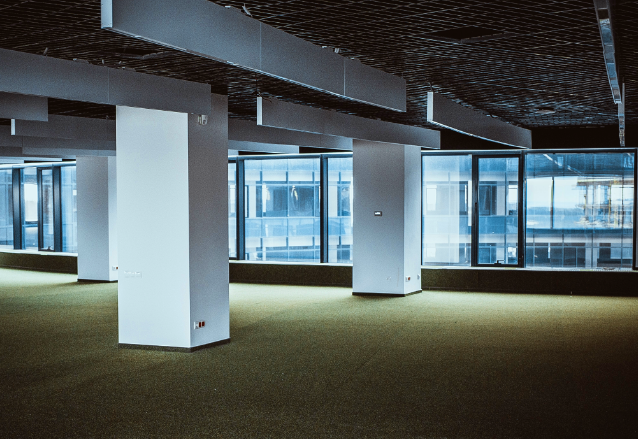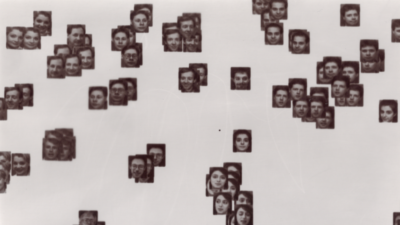
Research in Focus
Digital future of the workplace
The dynamic interplay of digitalisation and artificial intelligence (AI) is on the verge to fundamentally reshape the workplace landscape. While consensus exists on this shift, the precise contours of this impending transformation remain unclear. How exactly will digital organising, digitalisation, and AI in the workplace change our working world? In our research, we explore and explain these phenomena, assess their impacts, as well as associated opportunities and risks for the future of work.
The adoption of digital technologies enables a shift in how work is organised and experienced in the workplace. For instance, organisations deploy AI to perform tasks that were once considered the domain of humans. This also encompasses the responsibilities of knowledge workers such as data analysts, software developers, researchers, lawyers, architects, engineers, or medical professionals.e In this context, artificial intelligence is also used to augment tasks, fostering intricate collaboration between human counterparts and AI systems. Concurrently, entrepreneurs are combining digital platforms, reputation systems and matching algorithms to organise online work effectively. This leads to the emergence of a global gig economy.. This synergy of digital organising, automation, and AI technology yields unprecedented efficiencies and transformative outcomes in the workplace.
Future of the workplace
The future of work is intricately linked to anticipated shifts stemming from both societal and technological progress in the workplace. It can be conceptualized as a spectrum of competing narratives that outline the future landscape of work. These narratives are diverse. Some scenarios are negative, describing upheavals caused by automation that can lead to unemployment. On the other hand, there are more optimistic depictions where machines take over routine tasks and enable humans to focus on more meaningful activities. Equally, there are skeptical portrayals suggesting a continuity with the present workplace trajectory.
Digitisation, AI and automation on work dynamics
Our research challenges the deterministic views that solely attribute workplace transformation to digitalisation and AI, overlooking other stakeholders like employees, workers, and representative bodies such as work councils. Instead, we conduct empirical research to trace, explore and understand the facets of workplace digitalisation, assessing their impacts, benefits, and risks. This involves studying the impact on work output, but also the conditions that shape the work environment. Our empirical endeavors extend to examining how digitalisation, AI, and automation influence work dynamics.
Informed by our findings, we identify strategies and tactics that can be used to adopt digital technologies in a responsible manner that balances the interests of all stakeholders. Central to our exploration are the perspectives and close engagement of key players in the work ecosystem. This vantage point-driven approach furnishes us with a panoramic understanding of how digitalisation, AI, and automation reverberate across the diverse spectrum of stakeholders.
Our research uncover the intricate dynamics interwoven with digitalisation, AI, automation, and the future of work. Our approach transcends deterministic viewpoints, yielding empirically grounded insights that empower responsible digital transformation in the workplace.
Statement Talk
People analytics in the workplace - re:publica 2021
In our statement talk, Sonja Köhne takes a critical look at People Analytics and discusses the relevance of home office applications in particular.
Digital Salon
From the assembly line to AI
In our Digital Salon series, we discuss the various possibilities of socially acceptable AI in the world of work with Georg von Richthofen.
Digitaler Salon
From gig to gig
In the March issue of Digital Salon, we took a look at the future of platform work.
People Analytics: Hype, Fear and Real Opportunities
A lot of data is collected about employees. Current studies show: People analytics has risks, but also real potential for human resources.
Between experimentation spaces and traffic light systems: Negotiating artificial intelligence at the company level
AI presents worker representatives with new challenges. At the same time, they also develop new approaches to negotiating AI in the interests of employees.
Towards a socially just gig economy in Kenya: Stakeholder engagement and regulatory processes
The gig economy in Kenya is growing rapidly but conditions for workers are often precarious. We investigated the livelihoods of gig workers.
The Anywhere Jobs are nowhere near – How remote work is moving towards the city
Remote working allows us to work from "anywhere". So why are cities, of all places, becoming the new mega-hubs for digital work? What does this change bring to rural regions...
Digital strategizing as a new way of doing strategy
Considering the dynamics and processes related to the digitalization of the strategy making process results in a shift from digital strategy to digital strategizing. What's behind the concept?
Shaping AI in the interests of employees
AI offers opportunities and risks for employees. But what can managers and works councils do to enable potential positive effects and avoid negative effects?











